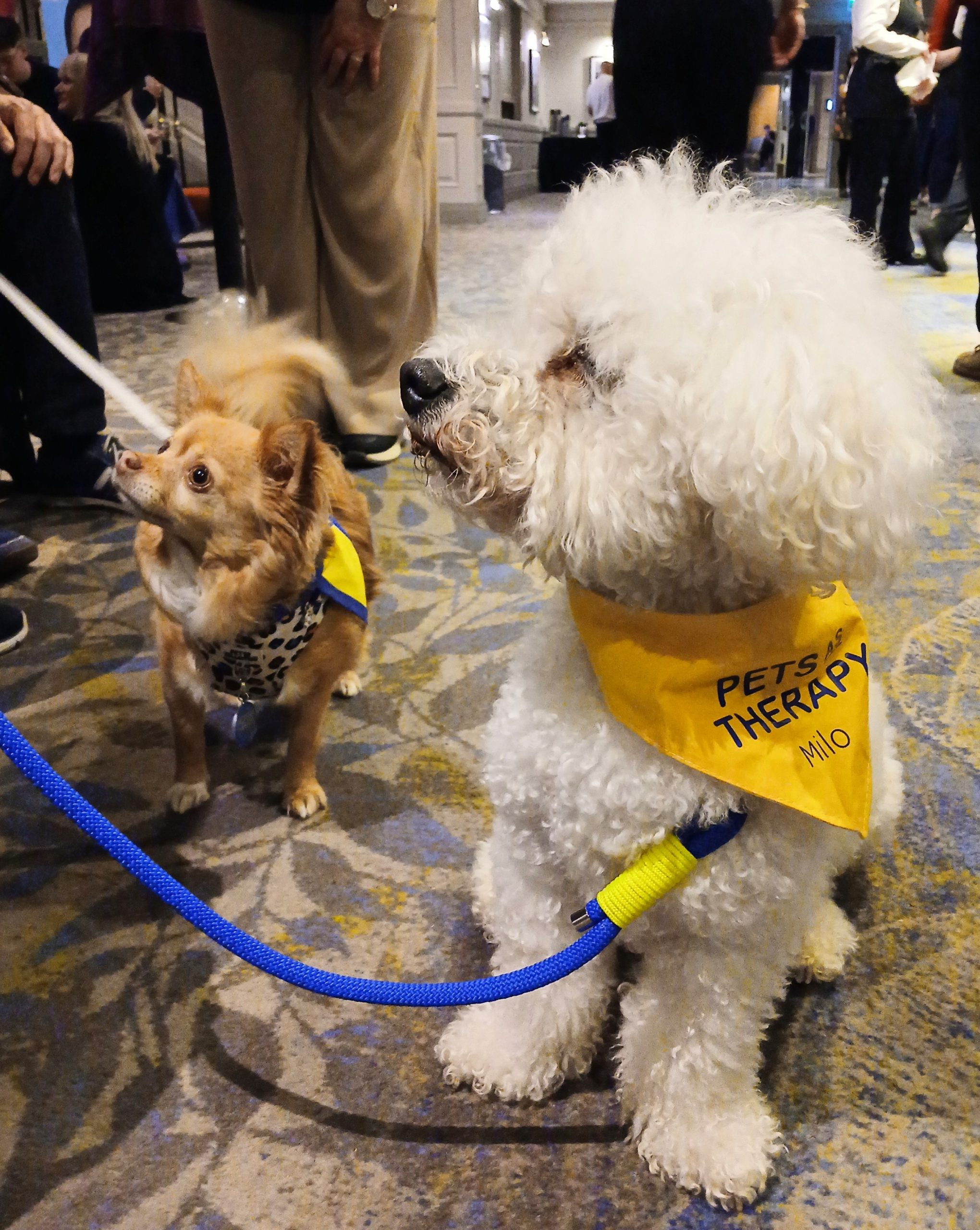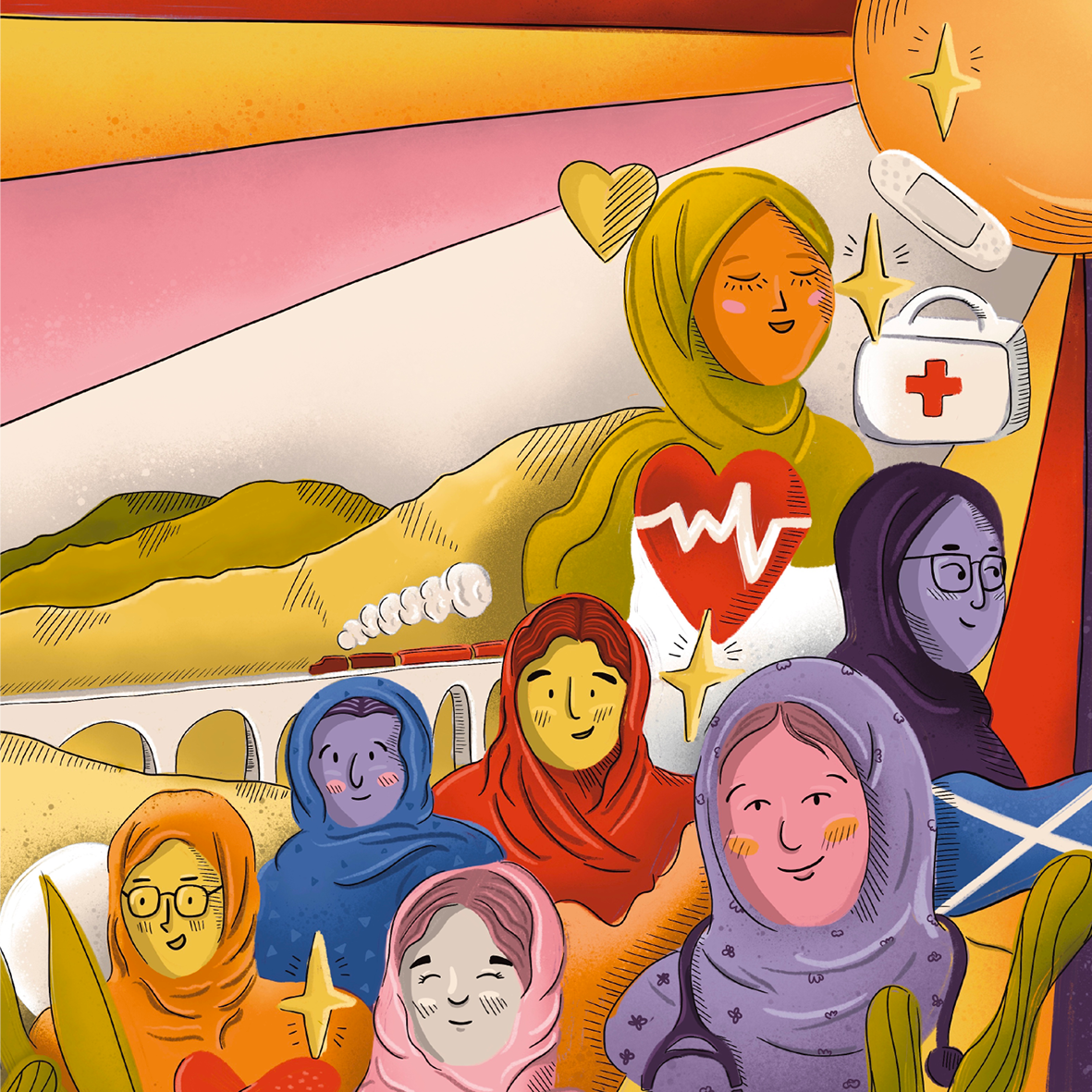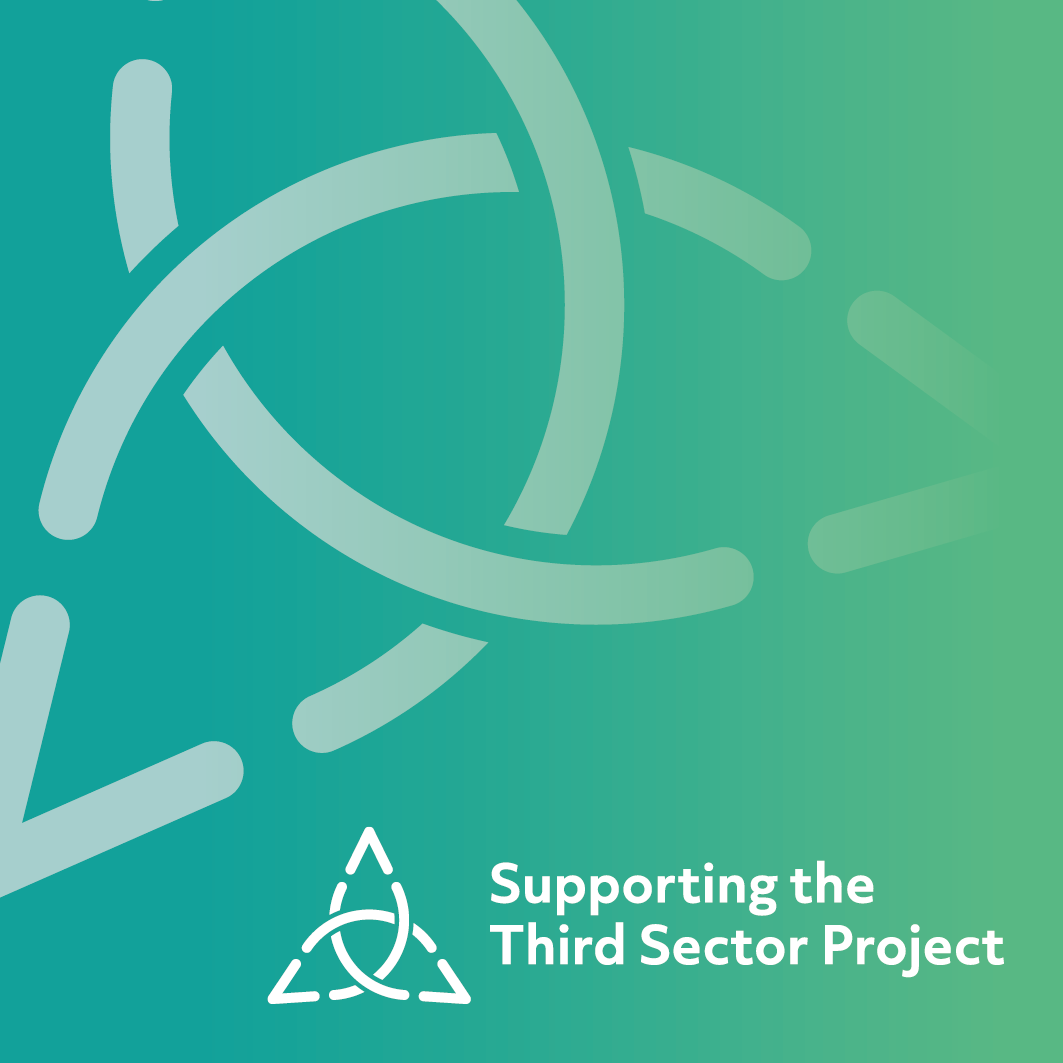Report by Calum Rosie, Communications Officer, Children in Scotland
Last week, Children in Scotland travelled to Glasgow for our Annual Conference 2025, an event that saw representatives from across the children and young people’s sector come together to learn from each other and build networks across the country.
We moved through to the west coast this year as a way to feel the influence from other parts of the country and to ensure the event stays fresh and sharp, which resulted in one of our most successful Annual Conferences ever. There were far too many brilliant moments to mention, but we’ve selected a small highlight sample of our favourite moments from across both days.
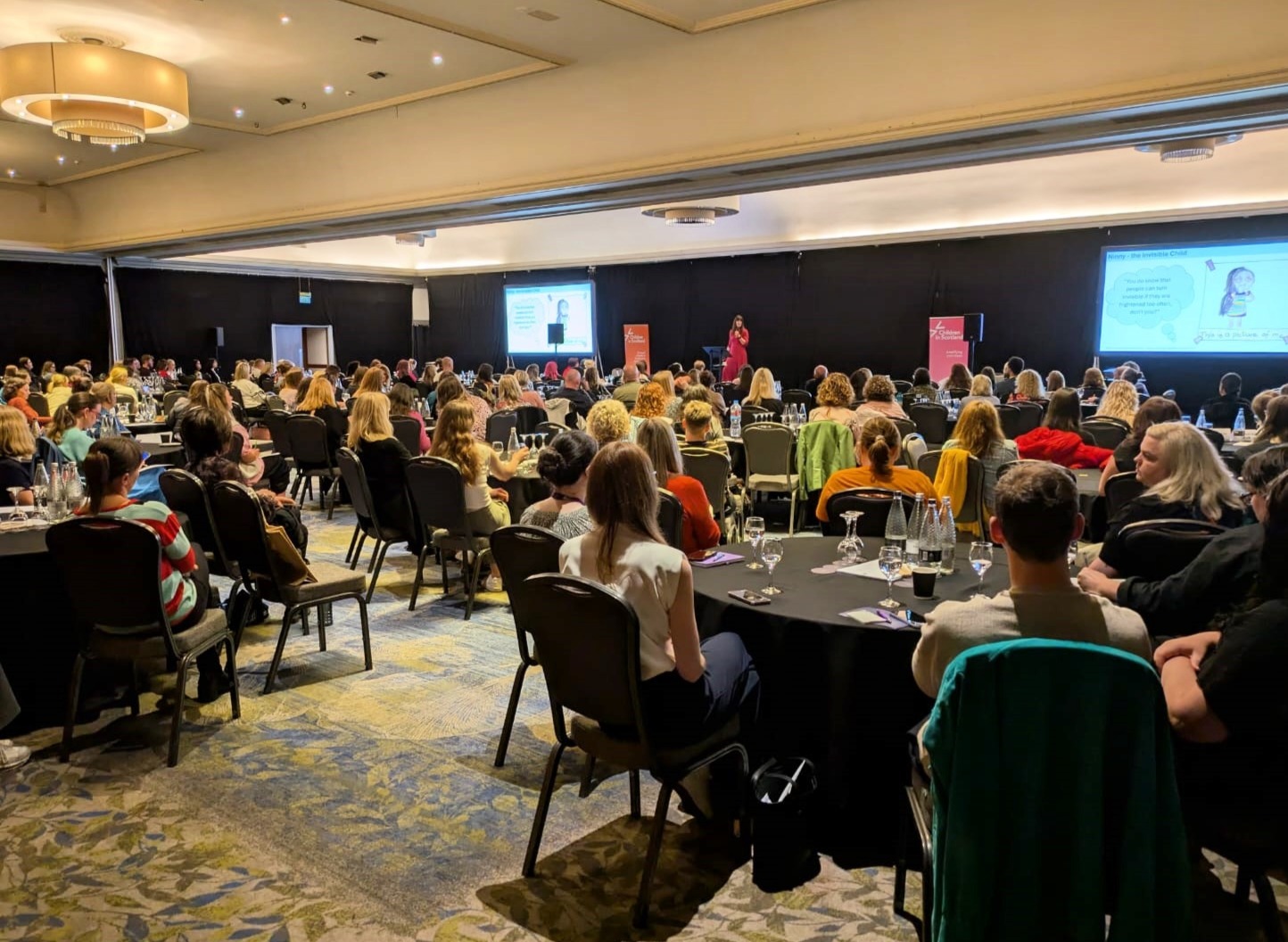
#SpaceforVoices
The conference slogan was ‘space for voices’, which summed up everything we wanted the conference to be: an event which allowed people to express themselves and discuss important topics with other members of the children and young people community. It was clear at the end of the two days, after hearing and participating in these discussions, that this was achieved.
However, a second theme naturally emerged as the conference progressed, with many speakers and workshops highlighting the ‘Dark and Light’. It was widely acknowledged that the world is facing incredibly dark and difficult times, particularly the world’s children and young people, with the suffering in Gaza, Yemen, and Sudan all mentioned alongside the challenges facing Scotland’s children and young people and those who work with them.
But this was always contrasted with a feeling of hope that shone through from being in a room full to bursting with a huge variety of people all determined to work together to build a better world for our children and young people. Children in Scotland’s CEO Dr Judith Turbyne said: “We have to understand the darkness, but we can’t be paralysed by it”, and that “when we come together, we really can make a difference.”
Children and young people's voices
Championing the welfare of children and young people is why many of the organisations who attended the conference exist, with Children in Scotland being no exception, which is why we were delighted to see so much participation from children and young people themselves across both days of the conference.
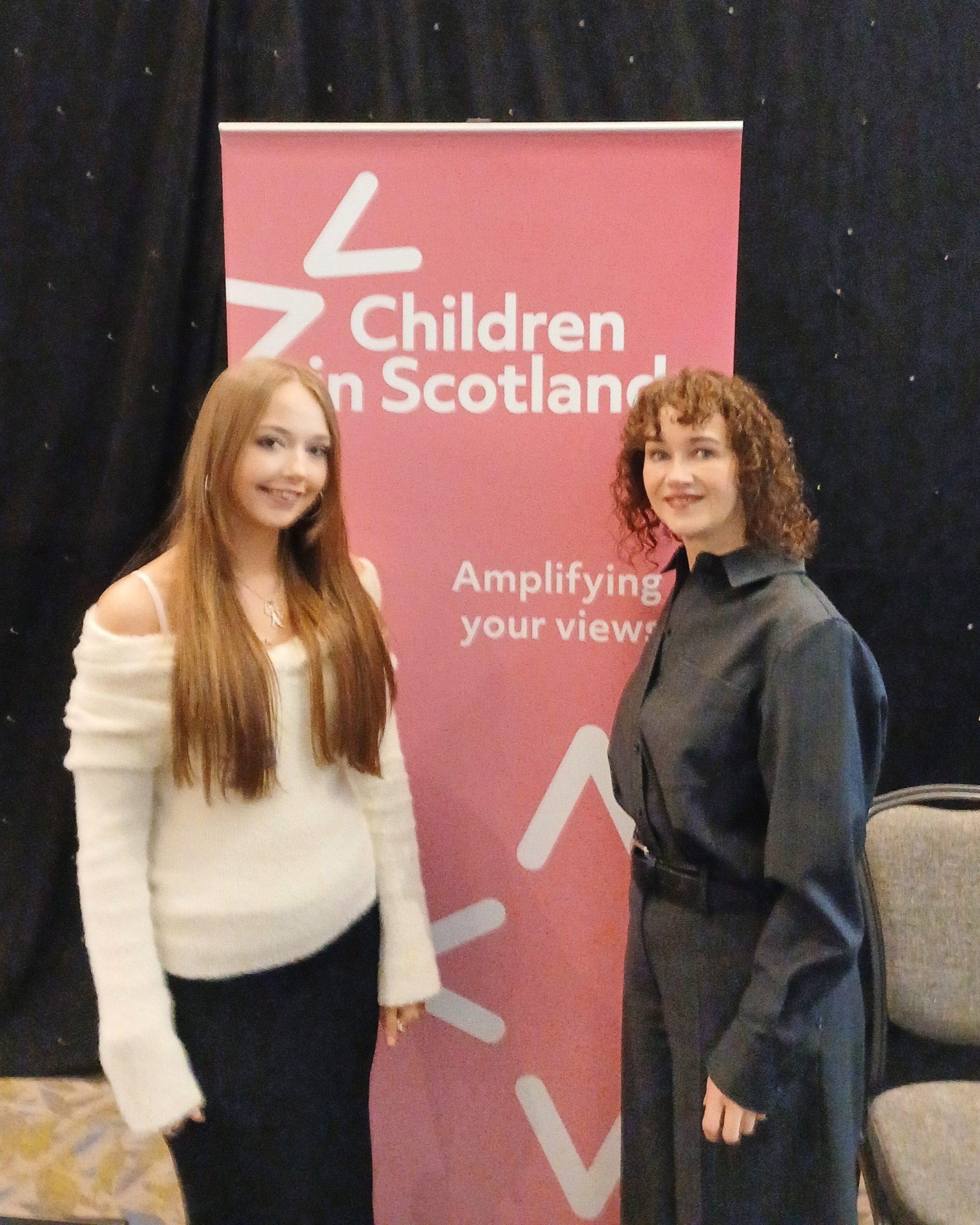
The conference was co-chaired by two members of our young people’s advisory group, Changing our World (CoW). Abbie-Rosie and Shaun did a marvelous job of keeping the whole event running smoothly, while other members of CoW were on hand to represent their group and participate in various workshops throughout the day.
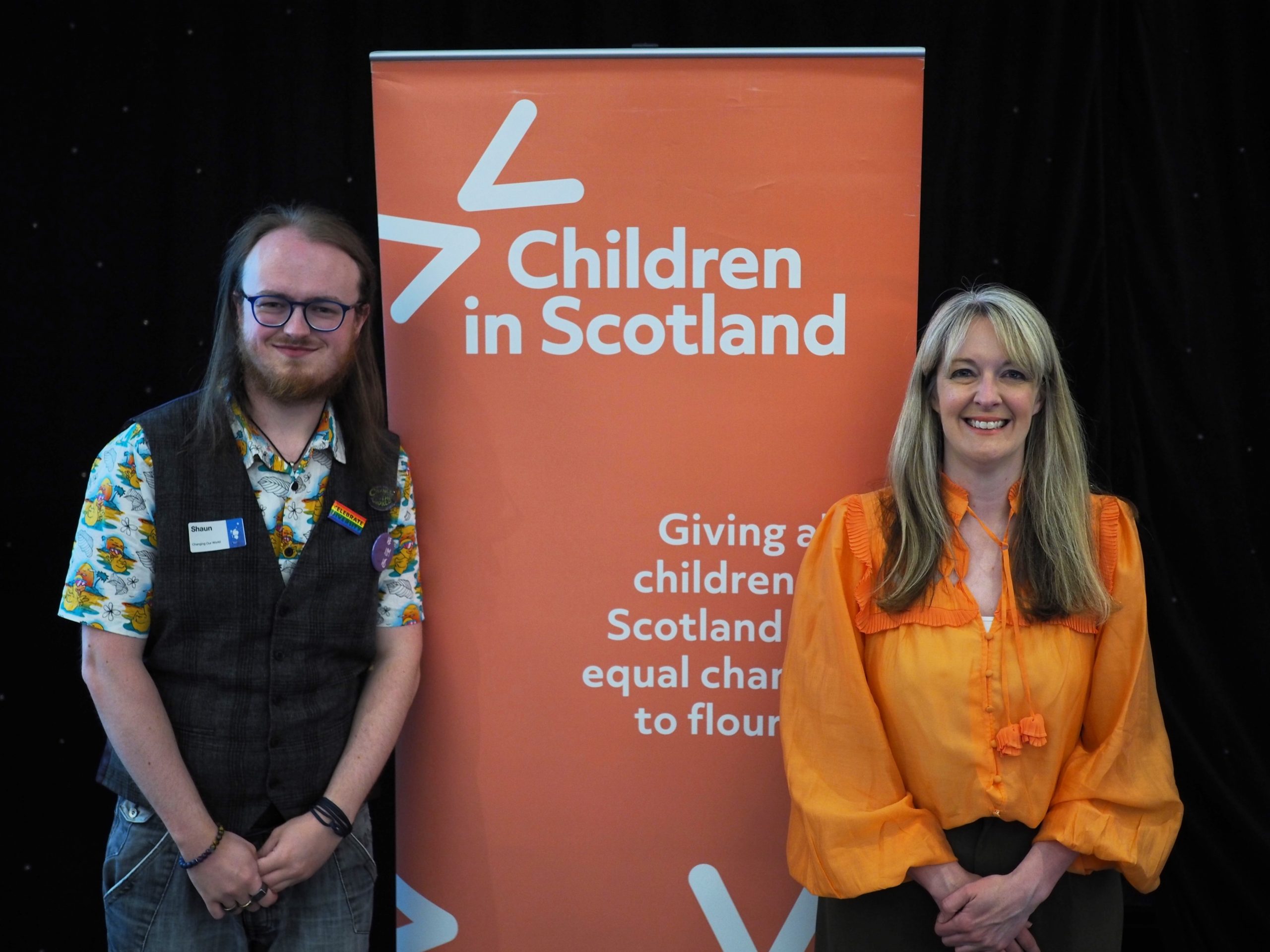
Many workshops featured children and young people in an active role, with representatives from Adoption UK in Scotland giving a brilliant contribution to their workshop, and Cyrenian’s Changemakers leading an eloquent and insightful panel calling for “action over words” and hoping to “ignite the spark of hope”.
It is essential that the voices of children and young people are heard while discussing issues affecting them directly, so it was fantastic to see them take centre-stage during this conference and express themselves so thoroughly and so effectively.
Making progress on key issues
A current focus for many working in the children’s sector in Scotland is on progressing towards The Promise, so it was no surprise to see it crop up several times across both days.
Fraser McKinlay, Chief Executive of The Promise Scotland, gave us a progress update, stating candidly that Scotland is “behind schedule”, but is “headed in the right direction” and is committed to “redoubling our efforts” to ensure that Scotland does indeed keep its promise to its children and young people.
Similarly, the UNCRC played an important role in proceedings, particularly during Director of Together Juliet Harris’ keynote speech, who called it “the glue that holds our commitment to babies, children, and young people together”, and stressed that “for these rights to mean anything we must see children and we must act with them.”
Artistic contributions
Universally agreed as conference highlights were our artistic contributors. Firstly, Dr Vanessa Collingridge gave a deeply insightful and personal speech about the power of music and its ability to influence our minds and bodies; this was paired with an mesmorising musical performance by her son Archie who then spoke about the impact music can have on mental health.
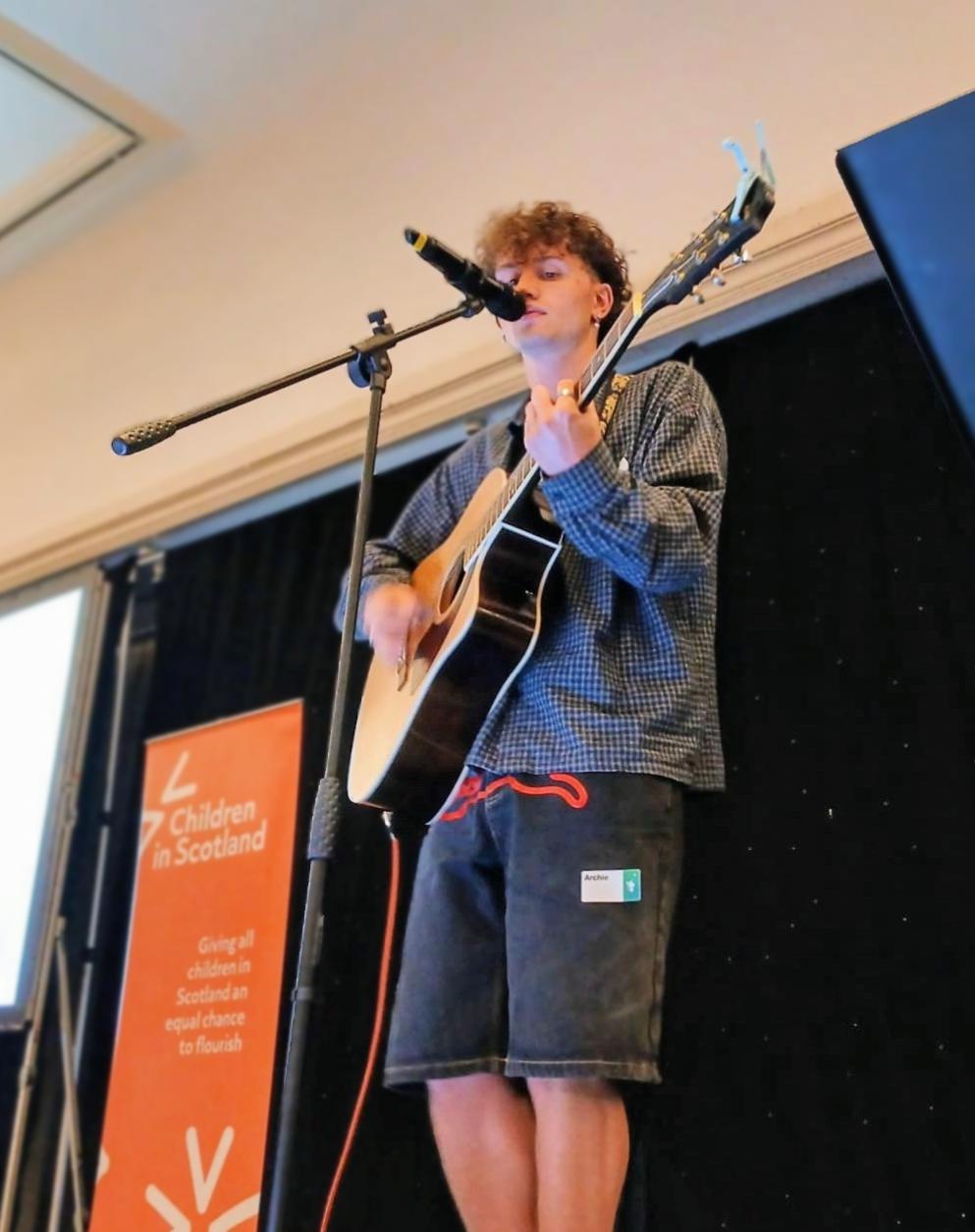
On day two, Nadine Aisha Jassat spoke brilliantly about her experience growing up as a child of two cultures and the role that books and storytelling have played in her life. Her talk ended with the audience creating a word cloud featuring words of hope for children in Scotland today, which Nadine then skillfully turned into a poem on the spot; this poem was kept onstage for the rest of the day, with several other speakers interacting with and praising it.
A spotlight on self-care
In planning the conference, our events team were dedicated to the idea that it be a safe, inclusive and comfortable space for all, both attendees and contributors. To that end, several measures were put in place to help to encourage self-care, such as having a dedicated quiet room for anyone who needed a still space to recharge and reflect.
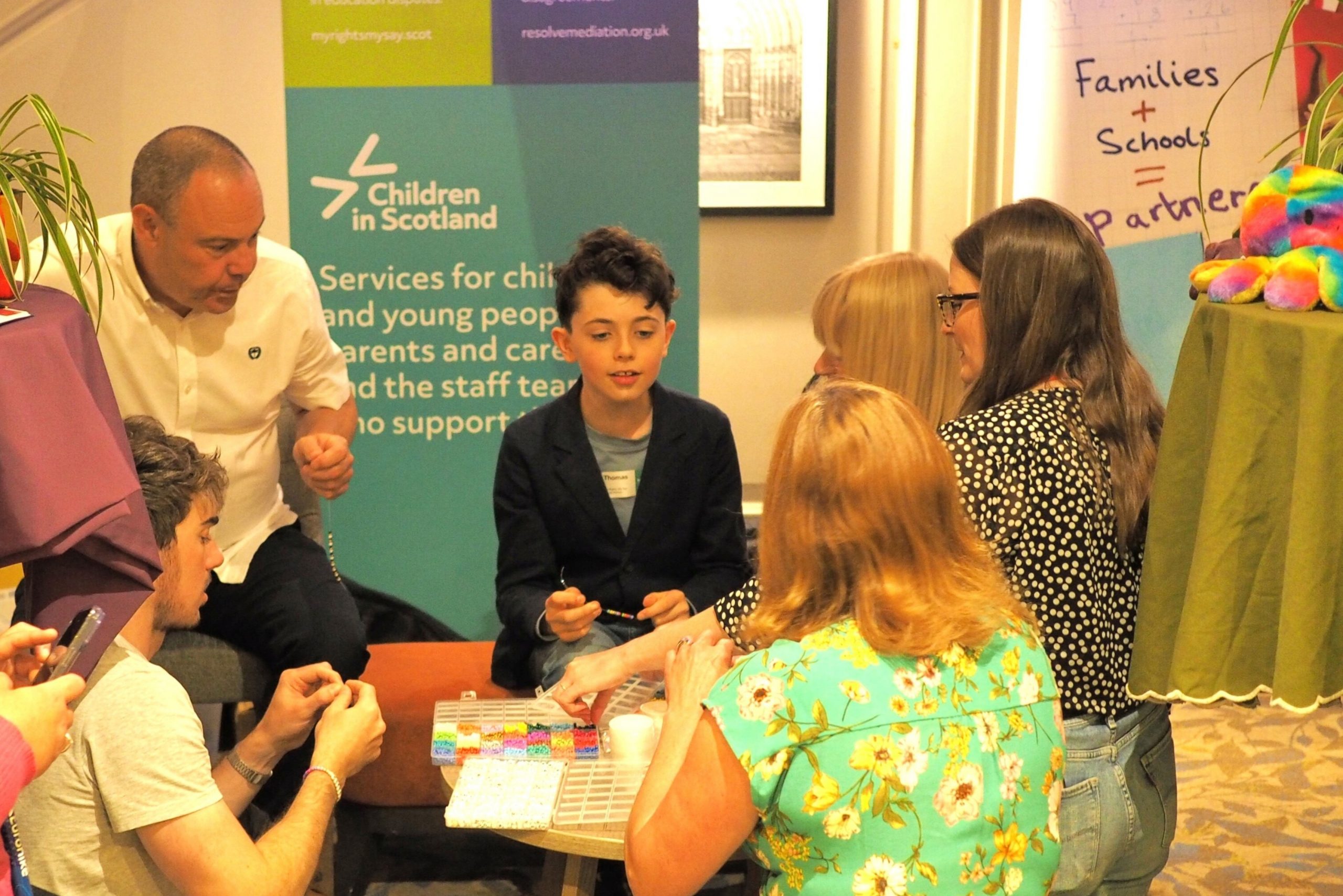
Additionally, the Enquire team set up a mindfulness area with soft, comfortable places to sit and chat, and activities that encouraged mindfulness such as making bead jewellery.
A very popular corner of the conference was dedicated, as always, to our friends from Pets as Therapy. Milo, Olive, Annie, and Zola provided a much appreciated energy of calm and acceptance, and seemed very happy to be repaid with lots of pats, cuddles, and the occasional biscuit.
